The President of India, Smt Droupadi Murmu presented the 70th National Film Awards in various categories in New Delhi today (October 8, 2024). She also conferred the Dadasaheb Phalke Lifetime Achievement Award for the year 2022 on Shri Mithun Chakraborty.
Speaking on the occasion, the President said that our films reflect the artistic sense of our society. Life is changing. The standards of art are changing. New aspirations are arising. New problems are emerging. New awareness is rising. Amidst all these changes, the unchanging values of love, compassion, and service are still making our individual and collective lives meaningful. We can see all these values portrayed in the films awarded today.
The President said that Indian cinema is the largest film industry in the world, with films being produced in multiple languages and in all regions of the country. It is also the most diverse art form. She congratulated the all award winners and appreciated the people associated with the film industry.
The President congratulated Shri Mithun Chakraborty for receiving the Dadasaheb Phalke Lifetime Achievement Award. She said that in his artistic journey of almost five decades, Mithun ji has not only portrayed serious characters on screen but has also portrayed with success many ordinary stories with his unique energy.
The President said that though the languages and backgrounds of award-winning films may be different, they all are reflections of India. These films are a treasure trove of experiences of Indian society. Indian traditions and their diversity come alive in these films.
The President said that films and social media are the most powerful mediums to bring changes in society. These mediums have, as more impact in creating awareness among people than any other medium. She noted that out of more than 85 awards distributed today, only 15 awards have been received by women awardees. She said that the film industry could make more efforts towards women-led development.
The President pointed out that meaningful films often do not find an audience. She urged aware citizens, social organizations, and governments to work together to increase the reach of meaningful cinema to the audience..
The Award ceremony saw the participation of award winners such as Manoj Vajpayee, Vishal Bhardwaj, Neena Gupta, Karan Johar, Rishabh Shetty etc. Other personalities from Indian cinema such as Sharmila Tagore, Prasoon Joshi, etc were also present. Esteemed personalities such as A.R. Rahman and Mani Ratnam were among the awardees who received the prestigious National Film Award for the seventh time, a testament to their enduring brilliance and influence on the industry. Their achievements continue to inspire both aspiring and established artists in the ever-evolving landscape of Indian cinema.
Union Minister for Information & Broadcasting (I&B), Railways and Electronics and Information Technology, Shri Ashwini Vaishnaw, Union Minister of State for I&B Dr. L. Murugan, Sh. Sanjay Jaju, Secretary, Ministry of I&B, Shri Rahul Rawail, Sh. Nila Madhab Panda, & Shri Gangadhar Mudaliar as Jury were also present at the event.
Sh. Ashwini Vaishnaw warmly welcomed all the attendees, expressing his honor to be part of this prestigious event, which celebrates the brilliance of filmmakers, actors, technicians, and all stakeholders involved in the art of cinema. He also paid tribute to legendary actor Mithun Chakraborty, who was honored with the prestigious Dadasaheb Phalke Award for his extraordinary contributions to Indian cinema and society. “Mithunda, your life is your message. You are an icon for our society, both on and off the screen,” he said, acknowledging the veteran actor’s exemplary career and public service.
Shri Vaishnaw highlighted the remarkable achievements of nine debut directors, applauding their bold storytelling, and celebrated the role of young innovators, whether in the film industry or startups, in driving the creative economy.
Indian Institute of Creative Technology (IICT)
To further support the growth of creative industries, Sh. Vaishnaw announced a landmark initiative – the establishment of the first Indian Institute of Creative Technology (IICT) in Mumbai. Modeled after prestigious institutions like the IITs and IIMs, which have produced some of the world’s finest technical and managerial talent (some of them leading the big giants like Google, Microsoft, etc), the IICT will focus on developing creative skills and knowledge. This new institution will serve as a hub for innovation, creativity, and talent development, ensuring India stays at the forefront of the global creative economy.
He also outlined the government’s vision to develop the film industry with three key pillars:
1. Development of Talent Pipeline: Recognizing the increasing role of technology in filmmaking, he emphasized the need for a strong talent pipeline. Drawing parallels with India’s success in IT and semiconductor sectors, he highlighted the importance of nurturing talent in creative technologies, with IICTs playing a pivotal role.
2. Infrastructure Development: Shri Vaishnaw stressed the need for world-class infrastructure to support the evolving needs of the film industry. He invited industry leaders to contribute ideas for creating a foundation that will propel Indian cinema to global standards.
3. Simplification of Processes: The Minister discussed simplifying permissions for filmmakers, making it easier for them to use diverse locations, such as railways, forests, and archaeological sites, in their projects. Streamlining these processes will encourage creativity and reduce bureaucratic hurdles.
Shri Vaishnaw also emphasized the importance of preserving India’s rich film heritage, from classic films to posters and newspaper clippings. He shared that decisions have been made to safeguard these invaluable treasures for future generations.
On this occasion, Secretary Shri Sanjay Jaju, also mentioned that 309 films in 32 different languages were received in Feature Films category and 128 films in 17 languages in Non-Feature Films category of 70th National Film Awards, thereby signifying the richness of our cultural landscape and inclusivity of our story telling. Recognising the resilience of Film industry in the background of global pandemic, he praised the film makers for captivating the audience through their art of storytelling.
Highlights from the 70th National Film Awards
This year’s National Film Awards continue the tradition of recognizing excellence across a diverse array of films and talent. The awards for 2022 feature several standout winners:
Best Feature Film: “Aattam (The Play)”, a Malayalam film directed by Anand Ekarshi, has won this prestigious award for its artistic brilliance.
Best Non-Feature Film: “Ayena (Mirror)”, directed by Siddhant Sarin, takes home this honor
Best Actor in a Leading Role: Rishab Shetty wins the award for his captivating performance in “Kantara” (Kannada)
Best Actress in a Leading Role: The Best Actress award will be shared by Nithya Menen for her portrayal in “Thiruchitrambalam” (Tamil) and Manasi Parekh for “Kutch Express” (Gujarati).
Best Direction: Sooraj R. Barjatya wins for his work in the Hindi film “Uunchai”
Some of the other award winners include “Brahmastra – Part 1: Shiva” in the Best Film in AVGC (Animation, Visual Effects, Gaming & Comic) category, “Kantara” for Best Popular Film Providing Wholesome Entertainment, and “Kishore Kumar: The Ultimate Biography” for Best Book on Cinema.
…..


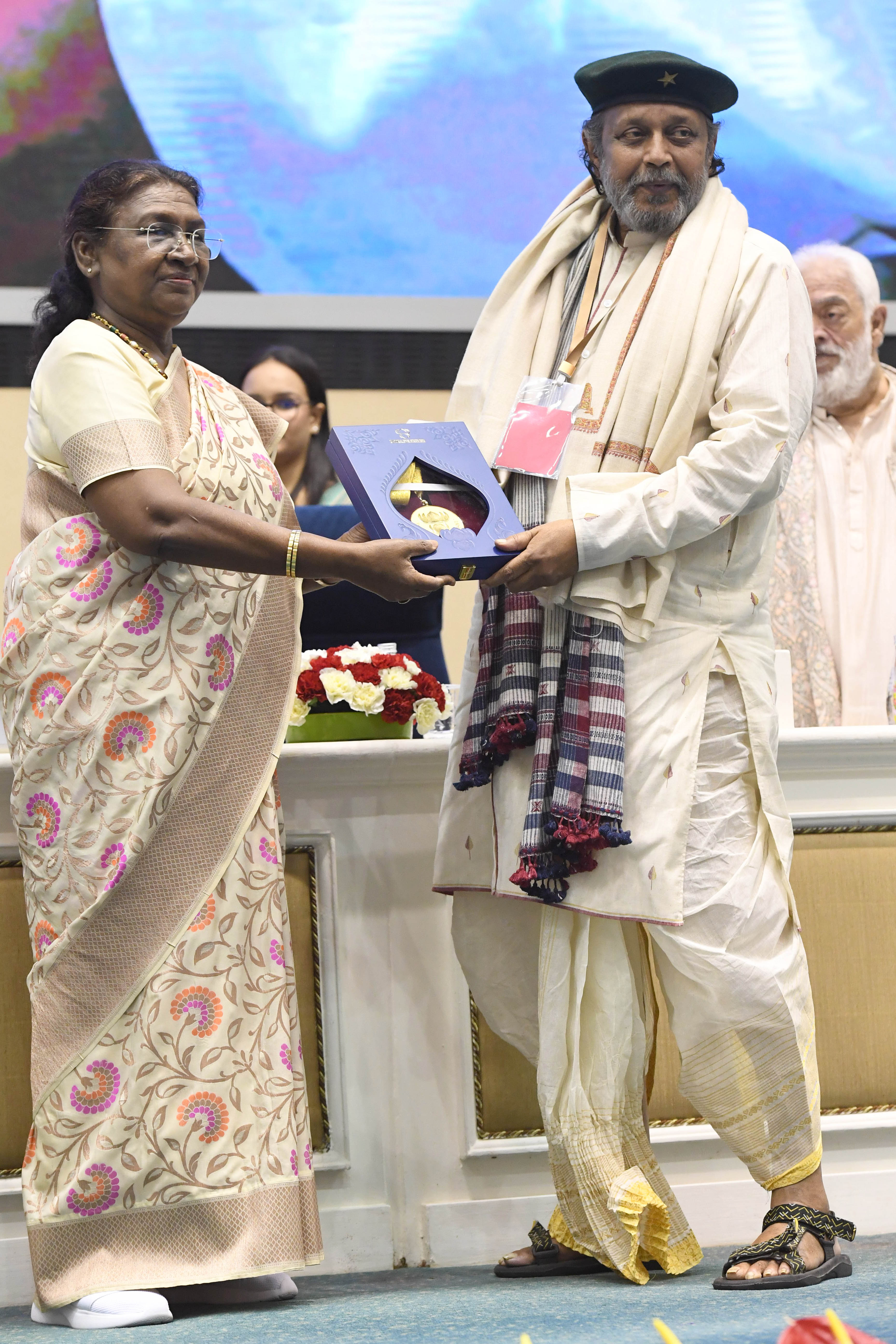
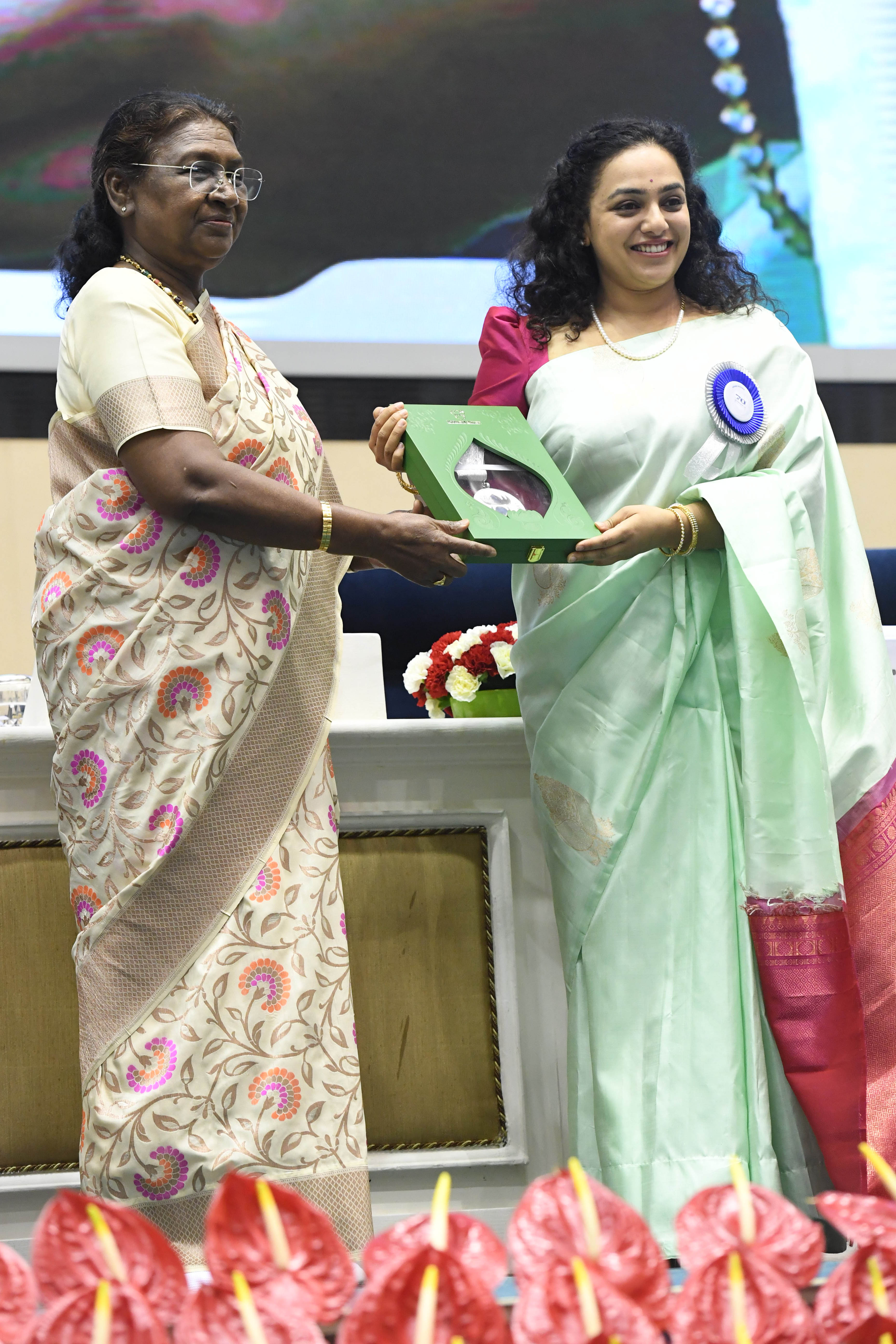
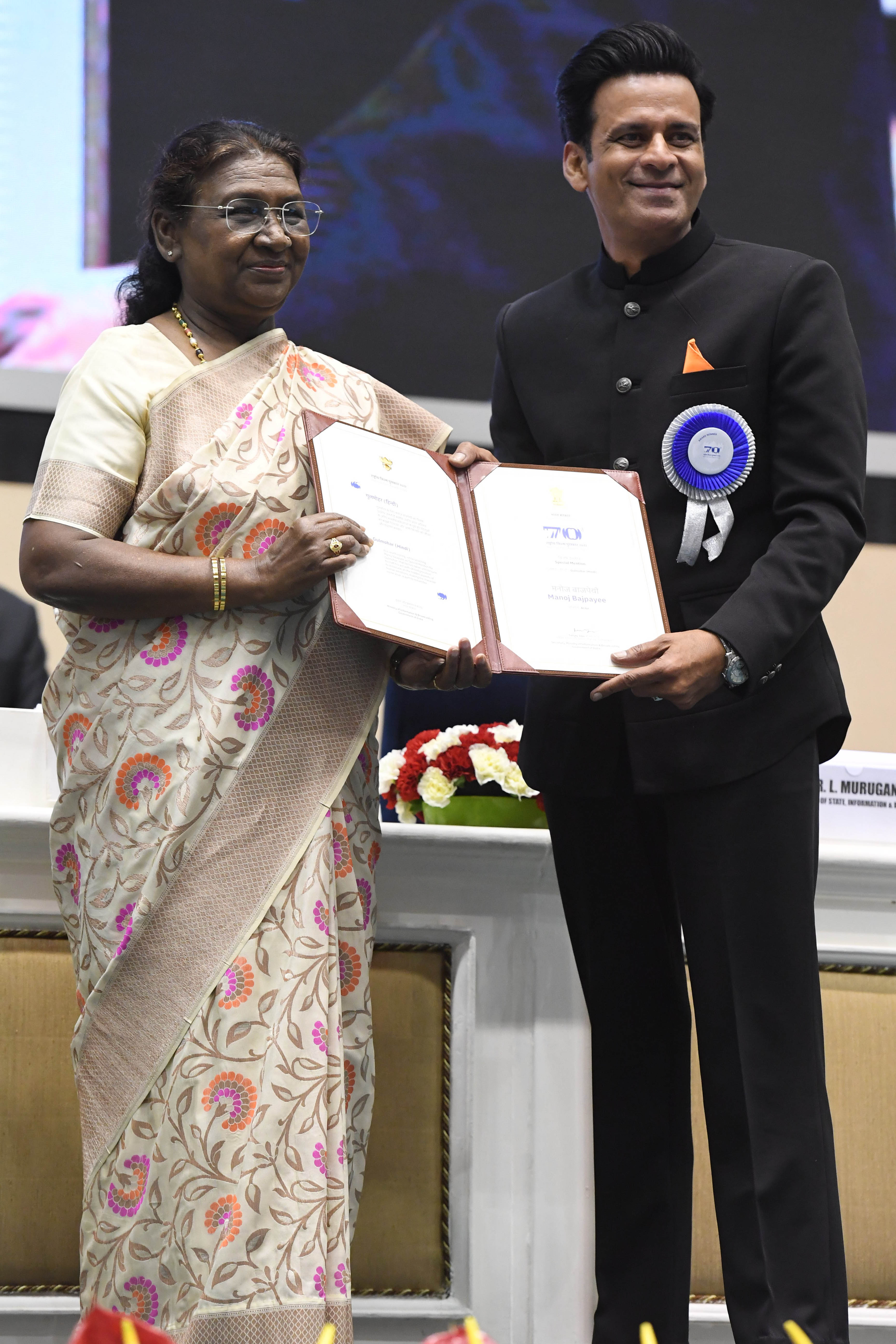
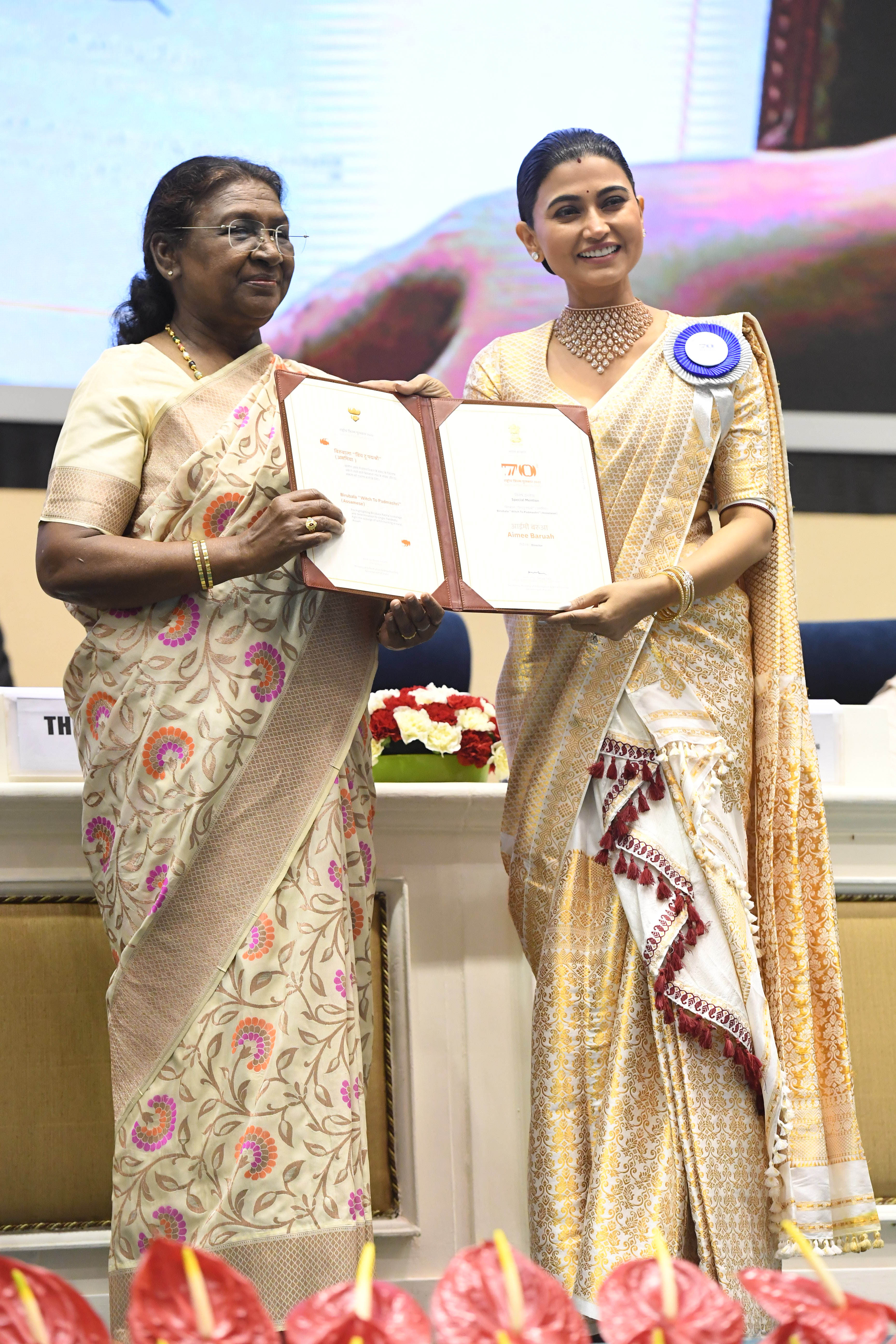






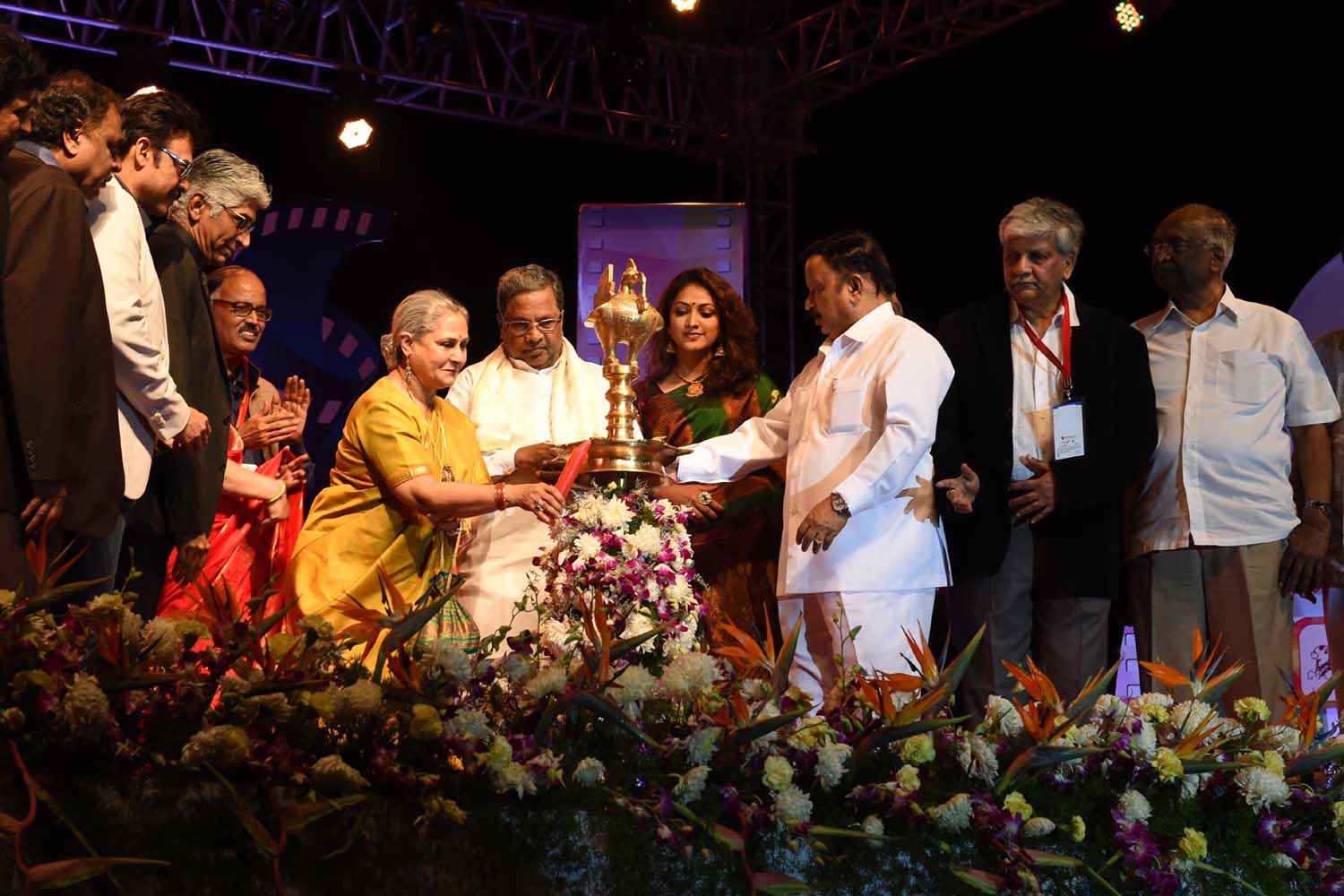
Leave a Reply